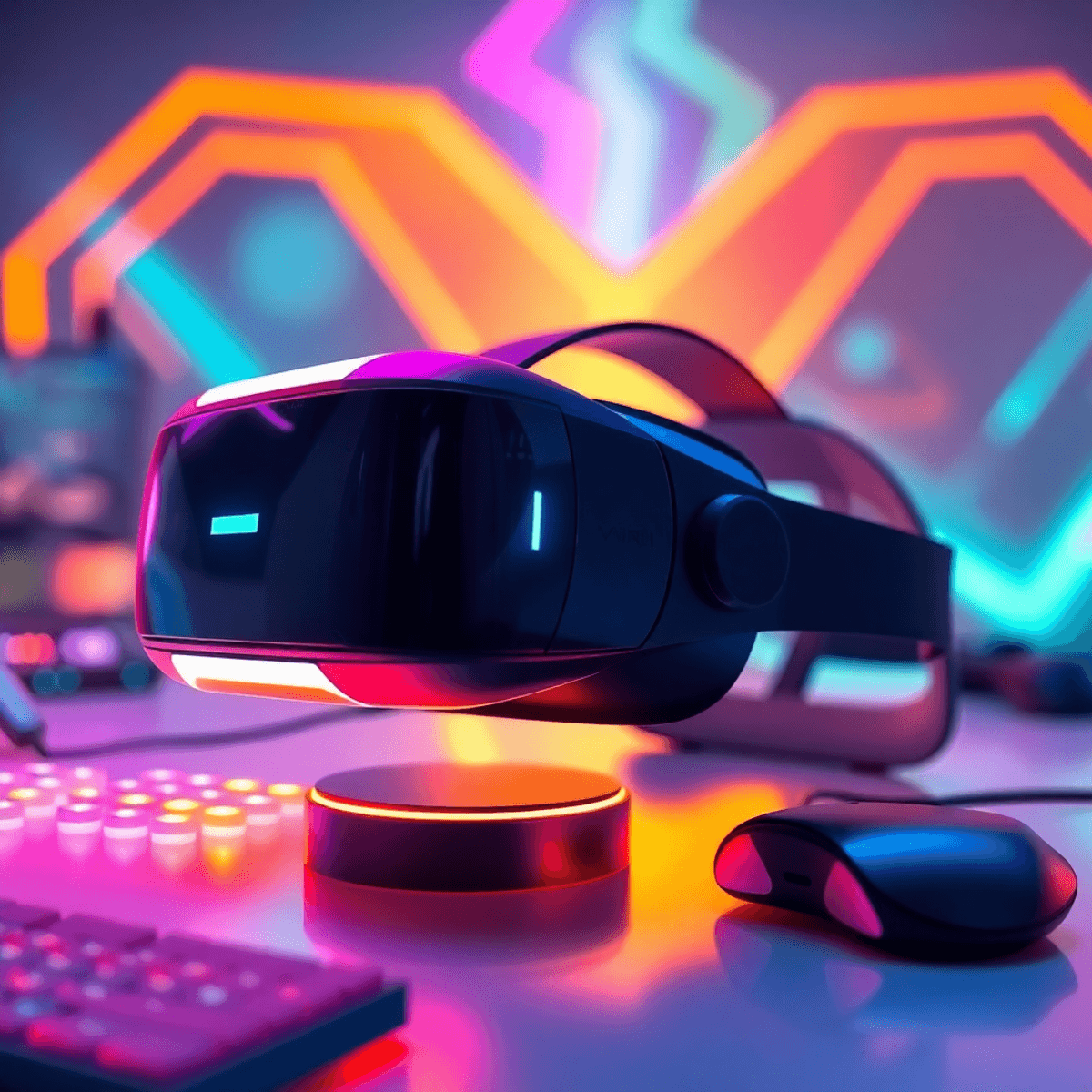
Valve has been a major player in the VR scene since the launch of the Valve Index in 2019. This headset raised the standards for performance and user experience, solidifying Valve’s reputation as an innovator in virtual reality technology.
The gaming community is eagerly waiting for the new rumored headset from Valve, codenamed “Deckard.” It is expected to compete with devices like the Meta Quest 3 and HTC Vive by offering advanced features.
As the VR market rapidly evolves, this upcoming headset holds great importance. While competitors are focusing on standalone capabilities, a successful launch could reshape user expectations and further expand immersive gaming. With its dedication to improving VR experiences, Valve’s new rumored headset has the potential to be a game-changing development in the ongoing evolution of virtual reality.
The Valve Index emerged in 2019, quickly earning a reputation as one of the best VR headsets available. Key features include:
This headset played a crucial role in shaping the VR industry. It set standards for visual quality and motion tracking, encouraging other manufacturers to improve their products.
When we compare the Valve Index to newer headsets like the Meta Quest 3 and HTC Vive, we can see some significant differences. Here’s how they stack up against each other:
|
Feature Valve Index Meta Quest 3 HTC Vive Connection Type |
Wired |
Wireless (Standalone) |
Wired/Wireless |
|
Target Audience |
High-end gamers |
Casual users |
Mixed audience |
|
Price |
Premium |
Mid-range |
Premium |
|
Visual Quality |
Top-notch |
Good |
Very good |
|
Advanced Features |
Yes |
No |
No |
While the Index focuses on wired connections and high-end PC gaming performance, competitors like the Meta Quest 3 emphasize standalone capabilities with affordability. The HTC Vive offers a middle ground with high-quality visuals but lacks some of the Index’s advanced features.
Each headset targets different segments within the VR market:
This diversity reflects evolving consumer preferences in the dynamic VR landscape.
The highly anticipated Deckard, rumored to be Valve’s successor to the beloved Valve Index, is generating significant buzz. Speculation suggests that this new headset will offer design changes aimed at enhancing user experience and positioning it competitively within the evolving VR market.
Wireless technology represents a significant leap forward in VR development. Deckard is expected to feature:
The introduction of new controllers codenamed ‘Roy’ is another exciting aspect of Deckard. These controllers are rumored to feature:
This evolution in controller design indicates Valve’s commitment to enhancing user interaction with virtual environments. The focus on intuitive controls aims to simplify gameplay mechanics while enriching the overall experience.
As Valve gears up for the potential launch of Deckard, insights from industry insiders such as Gabe Follower provide tantalizing glimpses into its capabilities. If these rumors hold true, Deckard could redefine expectations for VR headsets in terms of performance, usability, and immersive experiences.
With these anticipated features aligning closely with consumer expectations and market trends, all eyes are on Valve as they prepare to unveil their next-generation headset. The competitive landscape of VR continues to evolve rapidly; Deckard might just be what enthusiasts have been waiting for.
The anticipated Deckard, Valve’s rumored successor to the Index, is not just about hardware advancements. It is expected to leverage a refined version of SteamOS, ensuring an optimized experience for gamers. This could enhance compatibility with existing Steam library titles while introducing new features tailored for VR.
Insights from reputable leaker Gabe Follower suggest that Deckard could launch before the end of 2025 with an expected price point around $1,200. This positions it as a premium offering in the VR market, likely appealing to dedicated gamers looking for cutting-edge technology paired with robust software support.
As Valve continues its push into next-gen virtual reality, the focus on both performance and user experience could redefine expectations in the industry.
Valve’s anticipated headset, Deckard, enters a competitive landscape dominated by notable players like the Meta Quest 3 and Apple Vision Pro. Each device brings unique features and pricing that could influence consumer choices.
|
Device Price Features Meta Quest 3 |
$299 |
Standalone functionality, solid graphics performance, and an extensive library of games. |
|
Pico 4 Ultra |
Approximately $499 |
Similar standalone capabilities, lightweight design, and robust social experiences. |
|
Deckard |
Expected price around $1,200 |
Anticipated features include advanced wireless capabilities and innovative controllers. |
This pricing strategy places Deckard in a premium category. It will need to justify its cost through superior technology and user experience.
The Apple Vision Pro has set a high bar with its advanced hand-tracking technology. Despite Valve’s decision not to chase the same hand-tracking path with Deckard, its approach centers on immersive gameplay rather than merely replicating existing tech.
Potential Features of Deckard:
With these strategies, Valve aims to position Deckard as a strong contender against established devices, harnessing its legacy while pushing the envelope in VR gaming technology.
The world of VR technology is constantly changing, with new and exciting improvements that could have a big impact on the development of Valve’s rumored headset, the Deckard. Here are some important trends to keep in mind:
Innovations in inside-out tracking systems are becoming more sophisticated, allowing headsets to deliver accurate movement without external sensors. This feature is crucial for a seamless user experience.
Improved display technologies, such as OLED and mini-LED panels, are providing better resolution and color accuracy. These enhancements contribute to a more immersive visual experience, setting new standards for VR gaming.
Implications of leaked SteamVR driver files suggest Valve is proactively developing software to support these technologies. The potential integration of advanced tracking and display capabilities in Deckard hints at a competitive edge over existing products.
With the gaming community eagerly anticipating updates, these technological advancements will likely play a pivotal role in shaping the headset’s features and overall performance. As Valve navigates this intricate landscape, the Deckard stands poised to redefine user expectations in VR gaming.
The rumors surrounding Valve’s Index successor, codenamed Deckard, signal a crucial moment for the future of VR headsets. As the market evolves, the anticipated features of Deckard could redefine user expectations and experiences in several ways:
Deckard’s potential release promises to shake up the competitive landscape, challenging existing players like Meta and Apple. With these developments, Valve aims not only to maintain its legacy but also to propel VR into a new era. The impact on VR gaming could be transformative, elevating user engagement and setting new industry standards.


